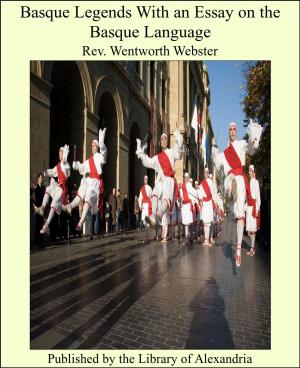My Lady Rotha: A Romance
Nonfiction, Religion & Spirituality, New Age, History, Fiction & Literature| Author: | Stanley John Weyman | ISBN: | 9781465597540 |
| Publisher: | Library of Alexandria | Publication: | March 8, 2015 |
| Imprint: | Language: | English |
| Author: | Stanley John Weyman |
| ISBN: | 9781465597540 |
| Publisher: | Library of Alexandria |
| Publication: | March 8, 2015 |
| Imprint: | |
| Language: | English |
I never saw anything more remarkable than the change which the death of my lady's uncle, Count Tilly, in the spring of 1632, worked at Heritzburg. Until the day when that news reached us, we went on in our quiet corner as if there were no war. We heard, and some of us believed, that the Palatine Elector, a good Calvinist like ourselves, had made himself King of Bohemia in the Emperor's teeth; and shortly afterwards--which we were much more ready to believe--that he was footing it among the Dutchmen. We heard that the King of Denmark had taken up his cause, but taken little by the motion; and then that the King of Sweden had made it his own. But these things affected us little: they were like the pattering of the storm to a man hugging himself by the fireside. Through all we lay snug and warm, and kept Christmas and drank the Emperor's health. Even the great sack of Magdeburg, which was such an event as the world, I believe, will never see again, moved us less to fear than to pity; though the city lies something less than fifty leagues northeast of us. The reason of this I am going to tell you. Our town stands, as all men know, in a nook of the Thuringian Forest, facing south and west towards Hesse, of which my Lady Rotha, Countess of Heritzburg, holds it, though all the land about is Saxon, belonging either to Coburg, or Weimar, or Altenburg, or the upper Duchy. On the north and east the forest rises in rolling black ridges, with a grey crag shooting up spire-like here and there; so that from this quarter it was not wonderful that no sound of war reached us. Toward the south and west, where is the mouth of the valley, and whither our people point when they talk of the world, a spur of the mountain runs down on either side to the Werra, which used to be crossed at this point by a wooden bridge. But this bridge was swept away by floods in the winter of 1624, and never repaired as long as the war lasted. Henceforth to come to Heritzburg travellers had to cross in old Joachim's boat, or if the river was very low, tuck up and take the chances. Unless they came by forest paths over the mountains. Such a position favoured peace. Our friends could not easily trouble us; our allies were under no temptation to quarter troops upon us. For our enemies, we feared them even less. Against them we had a rampart higher than the mountains and wider than the Werra, in the name of Tilly. In those days the name of the great Walloon, victor in thirty fights, was a word to conjure with from the Tyrol to the Elbe. Mothers used it to scare their children, priests to blast their foes. His courage, his cruelty, and his zeal for the Roman Catholic Church combined to make him the terror of the Protestants, while his strange personality and mis-shapen form gave rise to a thousand legends, which men still tell by the fireside.
I never saw anything more remarkable than the change which the death of my lady's uncle, Count Tilly, in the spring of 1632, worked at Heritzburg. Until the day when that news reached us, we went on in our quiet corner as if there were no war. We heard, and some of us believed, that the Palatine Elector, a good Calvinist like ourselves, had made himself King of Bohemia in the Emperor's teeth; and shortly afterwards--which we were much more ready to believe--that he was footing it among the Dutchmen. We heard that the King of Denmark had taken up his cause, but taken little by the motion; and then that the King of Sweden had made it his own. But these things affected us little: they were like the pattering of the storm to a man hugging himself by the fireside. Through all we lay snug and warm, and kept Christmas and drank the Emperor's health. Even the great sack of Magdeburg, which was such an event as the world, I believe, will never see again, moved us less to fear than to pity; though the city lies something less than fifty leagues northeast of us. The reason of this I am going to tell you. Our town stands, as all men know, in a nook of the Thuringian Forest, facing south and west towards Hesse, of which my Lady Rotha, Countess of Heritzburg, holds it, though all the land about is Saxon, belonging either to Coburg, or Weimar, or Altenburg, or the upper Duchy. On the north and east the forest rises in rolling black ridges, with a grey crag shooting up spire-like here and there; so that from this quarter it was not wonderful that no sound of war reached us. Toward the south and west, where is the mouth of the valley, and whither our people point when they talk of the world, a spur of the mountain runs down on either side to the Werra, which used to be crossed at this point by a wooden bridge. But this bridge was swept away by floods in the winter of 1624, and never repaired as long as the war lasted. Henceforth to come to Heritzburg travellers had to cross in old Joachim's boat, or if the river was very low, tuck up and take the chances. Unless they came by forest paths over the mountains. Such a position favoured peace. Our friends could not easily trouble us; our allies were under no temptation to quarter troops upon us. For our enemies, we feared them even less. Against them we had a rampart higher than the mountains and wider than the Werra, in the name of Tilly. In those days the name of the great Walloon, victor in thirty fights, was a word to conjure with from the Tyrol to the Elbe. Mothers used it to scare their children, priests to blast their foes. His courage, his cruelty, and his zeal for the Roman Catholic Church combined to make him the terror of the Protestants, while his strange personality and mis-shapen form gave rise to a thousand legends, which men still tell by the fireside.















